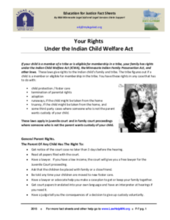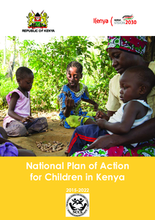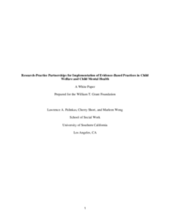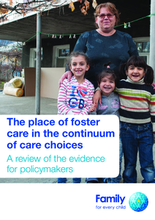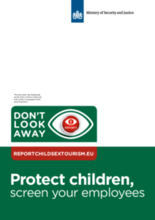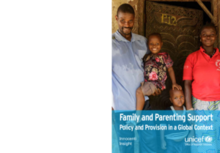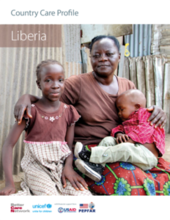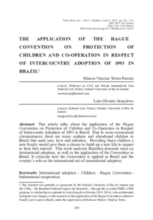Displaying 1051 - 1060 of 1798
This fact sheet describes the rights of native children and families under the Indian Child Welfare Act (ICWA) in the United States.
The National Plan of Action (NPA) provides an operational framework to guide stakeholders and partners in coordinating, planning, implementing and monitoring programmes for the child.
This paper addresses the disconnect between research and practice in regards to child welfare and child mental health services in the US.
This paper reviews the literature on foster care and explains the issues that foster children in Canada experience.
This report from Family for Every Child explores rising concerns about the expansion of foster care services in low and middle income countries, it begins to fill the gap in understanding, and aims to assist in both states’ and NGOs’ decisions on whether to invest in foster care, and in the kinds of supportive services needed to make foster care safe and effective.
The Dutch Ministry of Security and Justice has developed this flyer, along with ECPAT Netherlands, Better Care Network Netherlands and Terre des Hommes Netherlands, to motivate foreign organizations working with children to ask for a Certificate of Conduct when recruiting Dutch volunteers or employees.
This report examines and analyses policies and provision for family support and parenting support based on general literature searches and evidence gathered from 33 UNICEF national offices and detailed case studies of nine countries.
This country care profile provides an overview of key lessons learned in the children’s care reform process in Liberia, including successes, challenges and areas for progress, and gaps in learning and best practice.
This article talks about the application of the Hague Convention on Protection of Children and Co-Operation in Respect of Intercountry Adoption of 1993 in Brazil.
This case study of the child protection system in the United Republic of Tanzania is part of a UNICEF global initiative, undertaken in collaboration with Global Affairs Canada to document national child protection frameworks to gain an understanding of the country, the response of government and other actors, as well as other factors contributing to success in protecting children from violence, exploitation and abuse.

